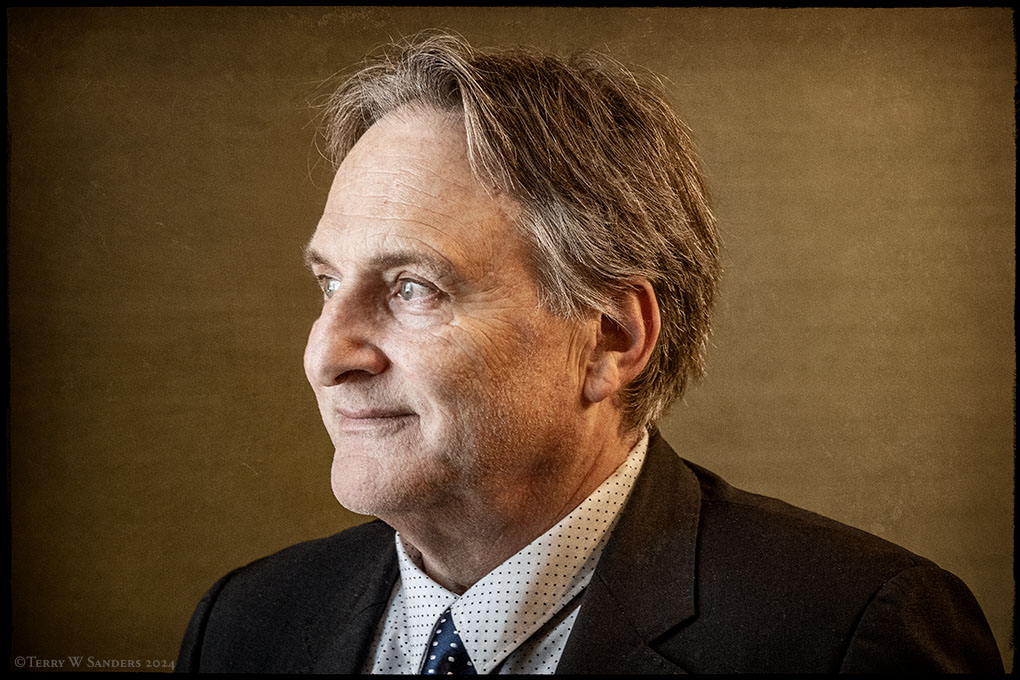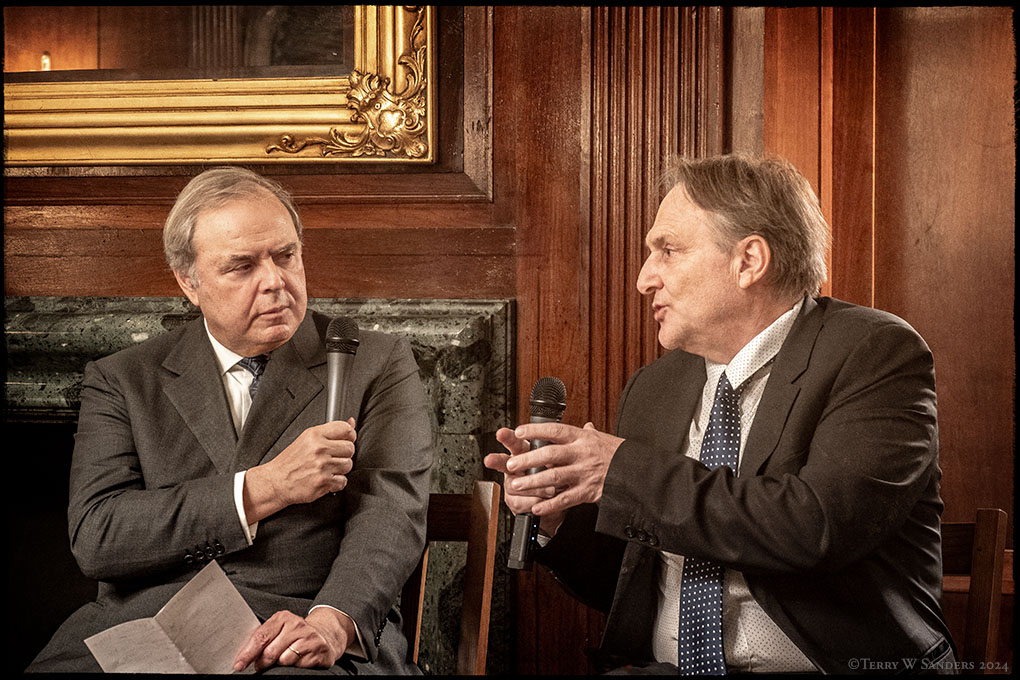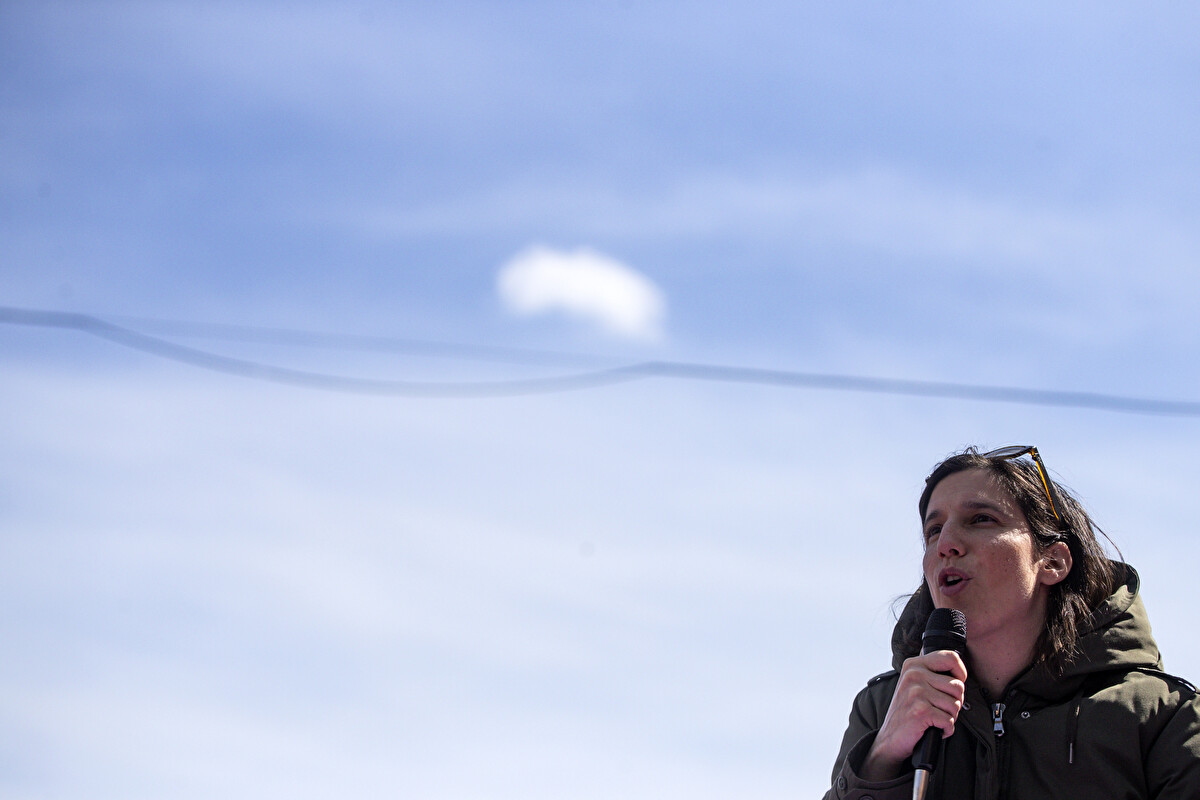Humble and funny, Professor Andrea Califano sat next to GEI president Mario Calvo-Platero in front of an intimate audience at the Racquet and Tennis Club, on Park Avenue, opening up about his story and work and trying to make the science of it as accessible as possible. President of the Chan Zuckerberg Biohub New York–chosen by Meta CEO Mark Zuckerberg himself–Mr. Califano is a pioneer in the field of systems biology and founding chair of the Department of Systems Biology at Columbia University Irving Medical Center.
Also present at the luncheon, organized by the Gruppo Esponenti Italiani (GEI), Councillor of the Sovereign Council of the Order of Malta Fra’ Nicola Tegoni, Ambassador and Permanent Observer at the United Nations Paul Beresford-Hill, Advisor for the Sovereign Order of Malta Permanent Mission to the UN Gregory Pang, as well as Italian journalist Alain Elkann.

Mr. Califano, “who is a professor, a teacher, an entrepreneur, and a physicist, does not have a degree in medicine, but still works with doctors on clinical trials everyday”, Mr. Calvo-Platero said. “This shows the interdisciplinary environment we are in here in the United States”, he ended.
“In order to make new discoveries, nowadays, especially in biology, you need to really gather an extraordinarily vast range of expertise, that goes from statics to machine learning, to technologies used to learn genomes, and knowledge of molecular development. You have to create a vast interdisciplinary group in research labs that can bring all this information together at the same time and can study precisely all the problems that come up,” Mr. Califano said.
He explained that he is able to work on clinical trials despite being a physicist because, “nowadays they are increasingly dependent on using predictive technologies that will tell you whether the patient will respond or not, when you use a particular biomark. The physician himself does not have the foundational expertise to be able to do that. So we are creating a new class of physician-scientists that essentially are bridging the gap between the basic bio researchers and clinical researchers. This helps us to participate in both designs,” the professor concluded.
Mr. Califano shed light on his innovative, systematic approaches to identify the molecular factors that lead to cancer progression, Alzheimer’s and Parkinson’s diseases–examining how and why cells deteriorate through aging. They are studying an effective way to reprogram cells in order to prevent chronic diseases. “It is not about increasing lifespan and stopping aging; instead, it is about giving life chances for everyone, from young to elderly people,” the professor said.

The atmosphere is convivial, passing from interesting biomedical insights to meetings with Mark Zuckerberg. “He is a very cool guy, very approachable. He comes to the lab wearing T-shirts and you can go to him and talk about everything,” Mr. Califano told the audience.
At the end of the lunch, comparing Italy and the U.S. came naturally. “I have to admit that, when I first came, it would have been almost impossible to do the kind of research they let me do here in Italy,” Mr. Califano confessed. “Mostly because the tremendous innovations there do not have a receptor in industry itself or need to wait for a publishing house to be launched. Here, instead, when a university makes a fundamental discovery the information drawn from that goes directly to the industry.”












